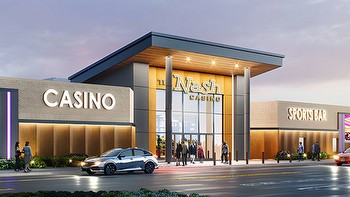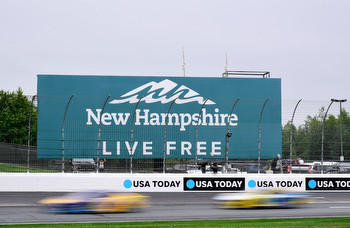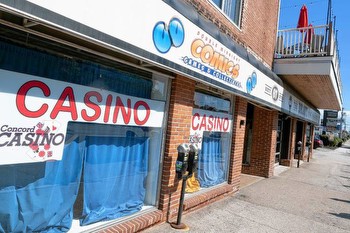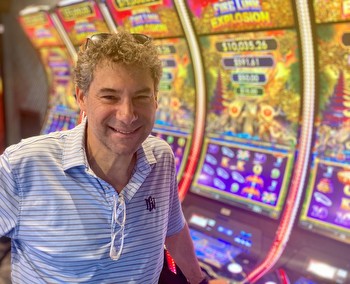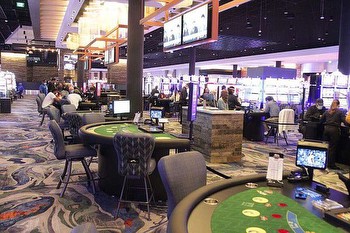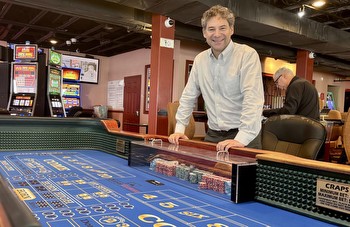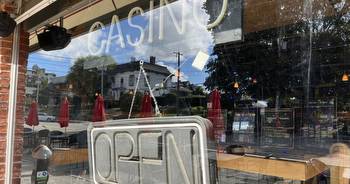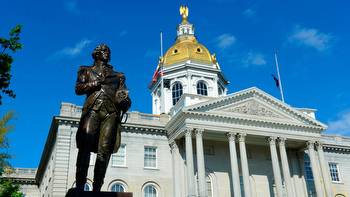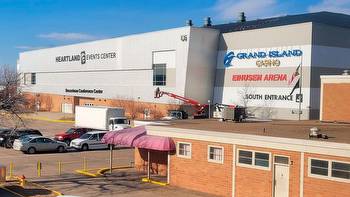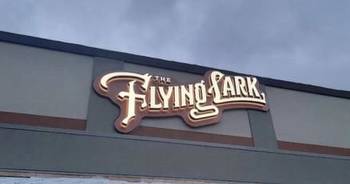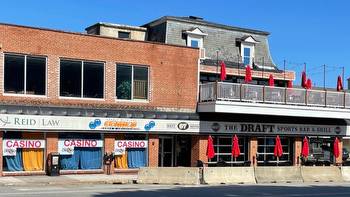Sanborn secures extension to sell his casino
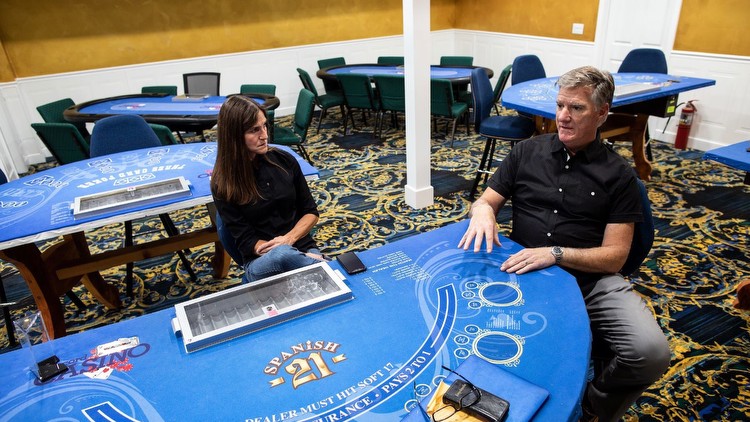
The state has granted former state Sen. Andy Sanborn’s request for at least a three-week extension to sell the casino it ordered shuttered in December following allegations he misused nearly $844,000 in federal pandemic aid to enrich himself, $181,250 of it on three race cars.
The initial June 27 deadline is now July 18 but could be much longer.
Sanborn’s attorney, Zachary Hafer of Boston-based Cooley LLP, said Wednesday evening that he has asked the state, which is requiring Sanborn to sell, to push the deadline out to September to give Sanborn time to finalize a pending sale.
He declined to provide any details about the buyer or sale. The New Hampshire Lottery Commission and the Attorney General’s Office declined to answer questions about the deadline extension.
Meanwhile, a new state law raises questions about whether Sanborn’s casino still holds its most valuable asset: access to one of the state’s limited and coveted licenses for historic horse racing.
In May alone, historic horse racing, played on what looks like slot machines, earned casinos more than three times what table games like poker and blackjack did, $10.7 million vs. $3.4 million, according to a Lottery Commision revenue report.
And, the Attorney General’s Office has declined to comment on the criminal investigation it announced 10 months ago into Sanborn and his wife, state Rep. Laurie Sanborn. Also unclear is whether the United States Attorney’s Office for New Hampshire is investigating Sanborn for possible federal criminal charges.
Attorney General John Formella said in August that he had referred the case to federal prosecutors. Jessica Kuron, a spokesperson for that office, declined to comment Wednesday, saying in an email it “does not confirm nor deny allegations into any matter.”
In the 10 months since Formella referred the case to the United States Attorney’s Office it has charged or obtained convictions for pandemic aid fraud of at least seven people, many of whom pleaded guilty.
Ten months later, no criminal charges
Sanborn’s legal problems with the Attorney General’s Office and the Lottery Commission became public in late August, when the two agencies moved to revoke Sanborn’s gaming licenses “indefinitely,” citing their findings that Sanborn had misled federal authorities in obtaining an $844,000 pandemic loan and then misused the money.
Sanborn, they said, had intentionally omitted the name “Concord Casino” in his application for the COVID-19 Economic Injury Disaster Loan, which was not available to gambling businesses. The agencies alleged that in addition to buying two Porsches and a Ferrari, Sanborn paid himself $183,500 in rent for his casino in Concord and the attached restaurant, The Draft.
An indefinite license revocation could have been devastating to Sanborn, who has been trying to significantly expand his casino in Concord, because he would have lost his ability to offer historic horse racing, the real moneymaker.
Sanborn and his attorneys have been successful in fighting the state’s efforts to close him down.
It gave him eight additional weeks to prepare his defense. It agreed to hand over the case to a Department of Safety hearing officer who was unfamiliar with the complicated history and gaming regulations. And, in perhaps the biggest concession, agreed to take on the heavier burden of proving Sanborn’s guilt rather than requiring him to prove his innocence.
He won again in December, when the Department of Safety rejected the state’s request to revoke Sanborn’s license and instead suspended it for six months to give Sanborn time to sell the casino or have a sale pending.
In his nine-page ruling, hearing officer Michael King said the state had provided sufficient evidence that the Sanborns had misrepresented the nature of their gaming business on their loan application and misspent the money. But, he said giving Sanborn the chance to sell his business rather than revoking his license was an appropriate penalty.
King has since retired and was recently replaced. In his request to extend the deadline, Hafer argued that an extension would give the new hearing officer time to get up to speed and Sanborn time to finalize a sale.
“All parties agree that a sale of Win Win Win is in the public interest and we look forward to finalizing a sale,” Hafer said in an email.
A sale may have become significantly more challenging in May, however, when Gov. Chris Sununu signed legislation that could be read to make Sanborn’s casino no longer eligible for the historic horse racing license a new buyer would want.
New law could pose problems for Sanborn
Senate Bill 472’s intent was to continue the state’s moratorium on new historic horse racing licenses to avoid oversaturating the market. It limits licenses to the existing 14 casinos that have that license or are eligible for it, and approximately a half-dozen that had submitted applications ahead of the bill’s deadline.
The bill’s prime sponsor, Sen. Tim Lang, a Sanbornton Republican, told the Bulletin he did not intend to eliminate Sanborn’s eligibility for a historic horse racing license and doesn’t believe the legislation signed by Sununu on May 20 does that.
But the language in the new law, which took effect the day Sununu signed the bill, is less clear and raises questions.
Under the prior moratorium, Sanborn’s casino qualified for a historic horse racing license because he held a gaming license as of May 1, 2020. Lang’s bill changed that date to May 20, 2024 – at which time Sanborn’s casino did not hold an active gaming license.
Hafer said in an email Wednesday evening that Sanborn remains eligible because while his license is not active, it hasn’t been revoked. It is suspended.
“Under a straightforward application of (King’s December) order, the plain text of SB 472, background principles of New Hampshire law, overwhelming legislative history, and common sense, Win Win Win was ‘licensed’ as of SB 472’s effective date, remains licensed today, and remains eligible for an HHR license,” he wrote. “Suspending the operability of a license does not eliminate the license itself.”
The New Hampshire Lottery referred questions about Sanborn’s eligibility under Lang’s bill to the Attorney General’s Office. Michael Garrity, the spokesperson for that office, told the Bulletin in May, “The Lottery does not consider (Sanborn’s casino) to be a licensed facility.”
He would not comment on whether the state views a suspended license as Hafer does.
This story was originally published by the New Hampshire Bulletin.








